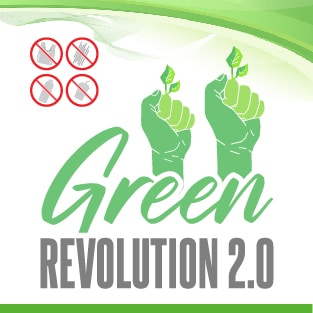
As the country prepares to take its first major step to phase out single-use plastic items from Friday, environmentalists highlight that this is a ‘make-or-break’ moment for India’s green future Is. The ban will set in motion a long-awaited plan to replace 19 items of ‘low utility’, which are difficult to collect and more challenging to recycle, with sustainable alternatives.
“Even though we believe that this ban is very limited, we have to acknowledge that it is an important step towards controlling the threat,” said Sunita Narain, director general of the Delhi-based Center for Science and Environment (CSE). “We don’t need to be warned about the problem. We live it every day. Our cities are littered with non-biodegradable plastic materials, and this is greatly increasing environmental stress and degradation.”
Manufacture, import, storage, distribution, sale and sale of at least 19 single-use plastic items, from straws, cutlery to plastic sticks, identified in the Plastic Waste Management (Amendment) Rules, 2021, notified by the government in August last year. Use is banned. Candies, balloons and earbuds. The list also includes PVC banners less than 100 microns in thickness that are often used by businesses for outdoor/indoor signage and advertising, and for polystyrene (thermocol) decoration purposes.
Although polyethylene bags (poly bags) have already been banned completely – the government has banned the use of plastic bags thinner than 75 microns. From December 31, the ban will apply to plastic bags with a thickness of less than 120 microns. The idea behind this is to ensure that thicker bags are easier to collect and recycle, while thinner bags are more likely to burst and eventually decompose into microplastics – a serious health hazard.
The ban also covers packaging/wrapping of plastic film on cigarette packets, sweet boxes and invitation cards, but the ‘Multi-Multi’ used in almost all fast moving consumer goods (FMCG) from chips to shampoos to gutka. – Layered Packaging (MLP)’ is not included. Pouch – which is being cited as a drawback. What’s more, because a lot of this packaging plastic escapes the recycling process, and has to be sent to cement plants to be incinerated, experts say.
According to the government, plastic packaging will be part of the Extended Producer Responsibility (EPR) guidelines for which were issued in February this year. Under the EPR, manufacturers/producers will be mandated to ensure environmentally sound management of the product till the end of its life, and ultimately strengthen the circular economy of plastic packaging waste.
There are concerns about the success of this model, and environmentalists argue that there is no information about the amount of this plastic material that is recycled/reprocessed or the waste generated by the company. Narayan said, “Under the EPR, companies are only required to recycle or reprocess the material collected by 2024. Not only is it based on self-declaration, but it is also in the public domain to assess its accuracy. There’s nothing available.”
Reflecting on the ban, the renowned environmentalist also stated that “it was time that people finally become responsible for their own waste and not use the items that are banned today, and demand more to be banned tomorrow- because we must live and can live without them.”
ready to bun
On Wednesday, the Ministry of Environment, Forest and Climate Change (MoEFCC) held a meeting with municipal commissioners of over 42 million cities (MPCs)/urban agglomerations (UAs) to ask their teams to enforce restrictions in their jurisdictions. urged to lead. “The success of the ban will be possible only through effective engagement and concerted action by all stakeholders and enthusiastic public participation,” the ministry reiterated.
Meanwhile, the Central Pollution Control Board (CPCB), which recently launched a grievance redressal app to allow people to report violations, has said that it is all set to achieve the ambitious target. . The app has geotagging facilities along with the facility to track complaints.
Instructions have already been issued to e-commerce companies leading single use plastic sellers/users and manufacturers of plastic raw materials to comply with the ban. The CPCB has also issued one-time certificates to around 200 manufacturers of compostable plastics, which do not require renewal, to promote the use of alternatives. Local authorities have been directed to issue fresh commercial licenses with the condition that SUP items will not be sold at their premises and existing commercial licenses will be cancelled, if entities are found to be selling banned SUP items.
The government is also planning to set up control rooms at the national and state levels and form special enforcement teams to check illegal manufacture, import, storage, distribution, sale and use of banned single-use plastic items. States and Union Territories have been asked to set up border check points to prevent inter-state movement of any banned single-use plastic items.
read all breaking news , today’s fresh news watch top videos And live TV Here.